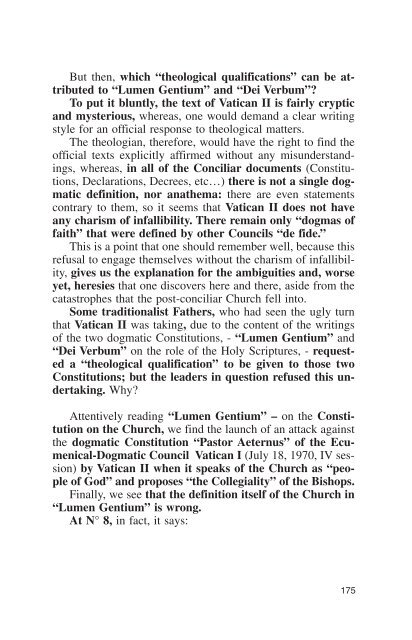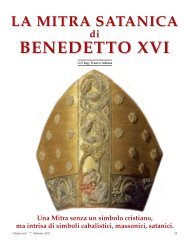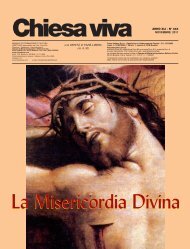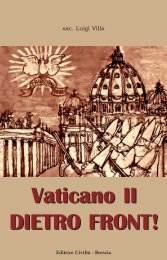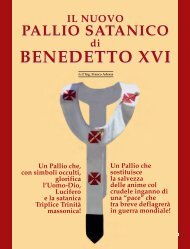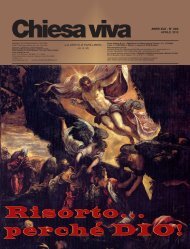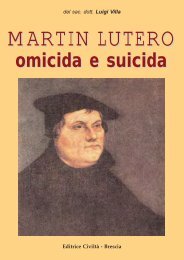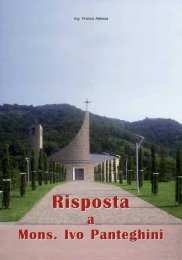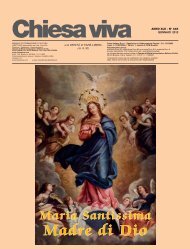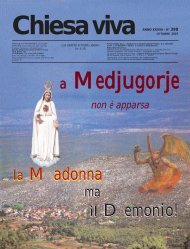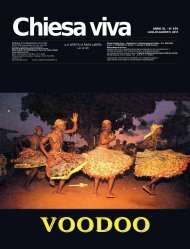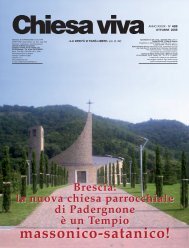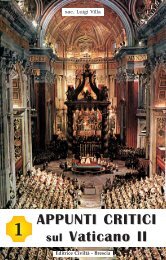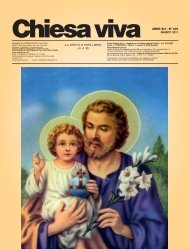Vatican II ABOUT FACE! - Chiesa viva
Vatican II ABOUT FACE! - Chiesa viva
Vatican II ABOUT FACE! - Chiesa viva
Create successful ePaper yourself
Turn your PDF publications into a flip-book with our unique Google optimized e-Paper software.
But then, which “theological qualifications” can be attributed<br />
to “Lumen Gentium” and “Dei Verbum”?<br />
To put it bluntly, the text of <strong>Vatican</strong> <strong>II</strong> is fairly cryptic<br />
and mysterious, whereas, one would demand a clear writing<br />
style for an official response to theological matters.<br />
The theologian, therefore, would have the right to find the<br />
official texts explicitly affirmed without any misunderstandings,<br />
whereas, in all of the Conciliar documents (Constitutions,<br />
Declarations, Decrees, etc…) there is not a single dogmatic<br />
definition, nor anathema: there are even statements<br />
contrary to them, so it seems that <strong>Vatican</strong> <strong>II</strong> does not have<br />
any charism of infallibility. There remain only “dogmas of<br />
faith” that were defined by other Councils “de fide.”<br />
This is a point that one should remember well, because this<br />
refusal to engage themselves without the charism of infallibility,<br />
gives us the explanation for the ambiguities and, worse<br />
yet, heresies that one discovers here and there, aside from the<br />
catastrophes that the post-conciliar Church fell into.<br />
Some traditionalist Fathers, who had seen the ugly turn<br />
that <strong>Vatican</strong> <strong>II</strong> was taking, due to the content of the writings<br />
of the two dogmatic Constitutions, - “Lumen Gentium” and<br />
“Dei Verbum” on the role of the Holy Scriptures, - requested<br />
a “theological qualification” to be given to those two<br />
Constitutions; but the leaders in question refused this undertaking.<br />
Why?<br />
Attentively reading “Lumen Gentium” – on the Constitution<br />
on the Church, we find the launch of an attack against<br />
the dogmatic Constitution “Pastor Aeternus” of the Ecumenical-Dogmatic<br />
Council <strong>Vatican</strong> I (July 18, 1970, IV session)<br />
by <strong>Vatican</strong> <strong>II</strong> when it speaks of the Church as “people<br />
of God” and proposes “the Collegiality” of the Bishops.<br />
Finally, we see that the definition itself of the Church in<br />
“Lumen Gentium” is wrong.<br />
At N° 8, in fact, it says:<br />
175


